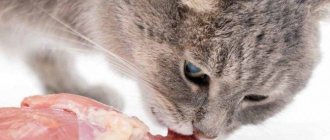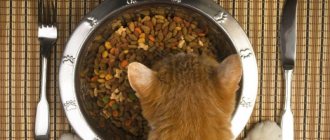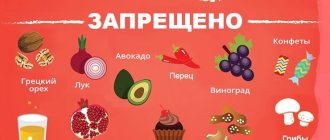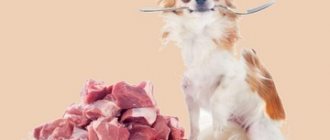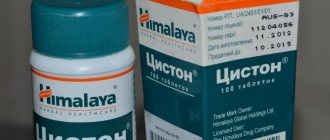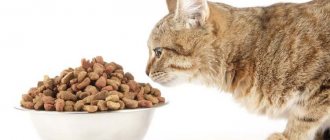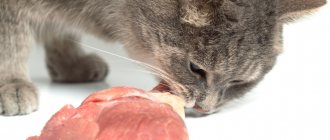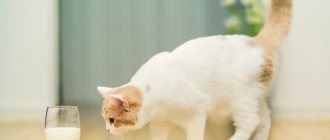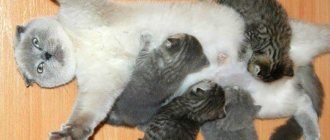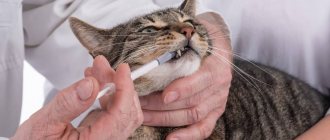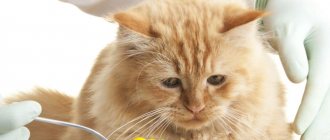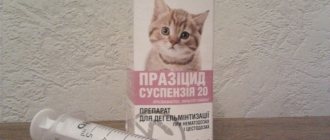What kind of raw meat is suitable for a cat?
Not all meat can be used to feed cats. Some of its types will cause one harm to the animal, causing digestive disorders. Useful for cats:
- beef,
- goat meat,
- horsemeat,
- lean lamb,
- rabbit meat,
- chicken,
- turkey meat.
In addition, offal products, which cats eat especially readily, will also benefit the animal if fed in moderation. However, the owner must remember that their animal can be given no more than 200 g per week (the same applies to fish). You can feed your animal raw foods only if they are well tolerated. Not every cat easily digests offal.
The freshness of the meat is of great importance for the animal. The statement that cats like meat that is not quite fresh and has a smell is nothing more than a misconception. It arose because some owners simply seek to save money on animal nutrition. In fact, bad meat is just as harmful to cats as it is to humans.
Homemade food or store-bought kitten food?
Arguing about which diet is best for a growing body is a thankless task. There will be plenty of supporters of feeding homemade food, as well as opponents. Both methods of eating have a number of advantages and disadvantages, for example, cooking at home will cost less than buying specialized food, but will the owner dare to cook every day? Those who advocate for home-cooked food are stopped by the price of store-bought quality food. What to feed small cats and cats is decided by each owner, based on his own ideas and income.
- Popular foods
- New
- Stock
GO grain-free food for kittens and cats with sensitive digestion with pollock
GO grain-free food for kittens and cats with sensitive digestion with pollock
Price: from 1251
Dry food for kittens Pro Plan Kitten Delicate Sensitive with sensitive digestion
Dry food for kittens Pro Plan Kitten Delicate Sensitive with sensitive digestion DRY COMPLETE FOOD FOR KITTENS WITH SENSITIVE DIGESTION OR WITH SPECIAL PREFERENCES IN FOOD, WITH TURKEY; RECOMMENDED FOR…
Price: from 276
GO grain-free food for kittens and cats with sensitive digestion with fresh duck
GO grain-free food for kittens and cats with sensitive digestion with fresh duck
Price: from 1320
GO grain-free food for kittens and cats with sensitive digestion with trout and salmon
GO grain-free food for kittens and cats with sensitive digestion with trout and salmon
Price: from 1527
Flexi NEW CLASSIC S (up to 15kg) tape 5 m Pink
Flexi NEW CLASSIC S (up to 15kg) tape 5 m Pink
Price: from 1098
BAB'IN SELECTIVE ADULTE SENSITIVE SAUMON Dry food for adult dogs with sensitive skin (salmon)
BAB'IN SELECTIVE ADULTE SENSITIVE SAUMON Dry food for adult dogs with sensitive skin (salmon) SUPER PREMIUM CLASS SENSITIVE SKINFood SELECTIVE ADULTE SENSITIVE SAUMON for adult dogs of all breeds from 10 months with sensitive…
Price: from 1730
PROPLAN GASTROINTESTINAL EN food for dogs with gastrointestinal tract disorders
PROPLAN GASTROINTESTINAL EN food for dogs with gastrointestinal tract disorders
Price: from 1153
Royal Canin Diabetic DS 37 Canine Dry dietary food for adult dogs with diabetes
Royal Canin Diabetic DS 37 Canine Dry dietary food for adult dogs with diabetes mellitus ATTENTION: when prescribing this food, insulin sensitivity in dogs significantly increases. At the beginning of the diet...
Price: from 1138
GO grain-free food for senior dogs 4 types of meat: chicken, turkey, duck, salmon
GO grain-free food for senior dogs 4 types of meat: chicken, turkey, duck, salmon
Price: from 1023
Plastic carrier for transporting animals “Tourne” with a metal door
Plastic carrier for transporting animals “Tourne” with a metal door
Price: from 900
Royal Canin Gastrointestinal Low Fat Dietary wet food for dogs with digestive disorders
Royal Canin Gastrointestinal Low Fat Wet dietary food for dogs with digestive disorders Canned complete dietary food for adult dogsROYAL CANIN® GASTROINTESTINAL LOW FAT (pate) -…
Price: from 127
Filter Tetratec EX 800 PLUS
Filter Tetratec EX 800 PLUS Powerful external filters for aquariums from 100 to 300 liters.• Powerful and quiet external filter for aquariums from 100 to 300 liters • Completely…
Price: from 7257
ALL FOOD FOR KITTENS
Perhaps expert advice will help you find the right solution:
- Consider financial possibilities: it makes sense to switch to a home cooking method if good specialized nutrition is expensive.
- Buying cheap food simply means harming your small pet; The composition of ready-made food advertised on TV is distinguished by the abundance of vegetables, meat and bone meal, and the addition of flavoring additives that are so attractive to cats. An unhealthy composition will result in problems with health and well-being.
- Kitten food is an ideal solution if the owner works a lot, stays late, is tired and does not have the strength to prepare a delicious dinner for the baby; take out the bag and you're done.
- Natural products are undoubtedly healthier than store-bought cat food. When choosing a method of feeding homemade food, remember: you will have to prepare a variety of dishes to cover your pet’s daily need for microelements. Make up for the deficiency with vitamin supplements. This incurs certain financial costs, but the finished pates and granules are balanced, the composition has the necessary substances for growth and harmonious development.
- A diet based on meat and cereals is ideal for a growing body. Physiologically, the intestines of animals are adapted to process hard protein foods, so soft foods (pates) become a common cause of constipation and diarrhea.
Can I feed it chicken?
This is what we are guided by when we feed our pet such products. However, we forget that the meat we buy on store shelves is not as healthy as what an animal eats living on the street. So what to do? Go hunting? Not at all! It’s enough to just figure out which meat will be useful for a cat and which not so much.
- Chicken is harmful to cats, as it is most often stuffed with antibiotics and various growth hormones, and is also. It will have to be abandoned. Chicken skin won't do him any good either.
- Turkey is an excellent substitute for chicken meat, and it contains many times more vitamins and healthy ingredients.
- Pork is a very “heavy” food product not only for humans, but also for cats, which can cause stomach upset and indigestion. It also leads to the pet becoming infected with worms, and in some cases, other dangerous infectious diseases.
Attention!
Pork contains a large amount of fats that are harmful to the pet’s body.
- Beef will be an excellent alternative to pork. Even veterinarians recommend giving cats this treat.
- In some cases, you can diversify a cat's diet with rabbit meat, but this should be done rarely and with caution. Let rabbit meat be a kind of delicacy for the cat.
The most important thing when choosing a food product:
- Freshness. Under no circumstances should you give your pet spoiled food. The meat must be fresh and of high quality.
- Temperature. It is not recommended to eat meat only from the refrigerator, much less from the freezer, but you also don’t have to reheat it, because hot food is also not allowed. It is enough to let it sit for a while at room temperature.
- Fat content. As already mentioned, cats don’t need excess fat. When serving meat to a cat, you need to get rid of the veins and fat.
- You need to choose only clean meat, without tendons and bones. Give preference to sirloin parts. Don’t forget to include by-products in your pet’s diet: liver, kidneys, heart. This should be done rarely and in small quantities.
Important!
Veterinarians have long argued that chicken meat is harmful to cats.
Chicken, raw and cooked, has a harmful effect on the liver of animals.
Frequent use of it can cause irreversible changes in the organ and develop some diseases, in particular pancreatitis and urolithiasis.
In addition, chicken bones, when they fall apart, have very sharp pieces and pose a risk of mechanical damage to your pet.
If your cat “can’t live” without chicken, then give her a small amount of natural poultry, or rather, its loin.
Not all meat can be included in a cat’s diet, even if it is of very high quality. In nature, animals can eat all types of meat and therefore hunt a wide variety of game. Domestic cats living in comfort already have a different metabolism, and therefore a number of foods can cause them harm and should not be given. A cat can get sick if its diet includes the following meat:
- pork;
- any fatty meat;
- duck;
- goose.
We suggest you read: What fruits can parrots eat? How to train a parrot to eat vegetables
The following products are prohibited:
- Fresh steam. Unprocessed meat is a potential source of harmful bacteria, helminth larvae and eggs.
- Salty. Salt disrupts the balance of minerals and retains fluid.
- Roast. Excess oil upsets metabolism.
- Canned. To increase shelf life, components harmful to cats are included: salt, seasonings, spices.
- Smoked. Wood smoke contains volatile carcinogens. When smoking for industrial purposes, meat is doused with an artificial liquid, which corrodes the gastric mucosa and causes an allergic reaction.
- Dried. The product is kept in a marinade with additives harmful to animals: salt, vinegar, spices, garlic.
- Meat waste. Bones, paws, and heads injure the digestive organs; cats do not digest chicken and turkey skin. The trimmings are taken from the surface of the piece, and therefore contain pathogenic microbes.
- Pieces larger than 2 cm. Large pieces are difficult to chew, which is why nutrients are less absorbed.
- Meat puree. A cat's teeth need stress; if you constantly feed them soft food, they are destroyed. The puree is suitable for kittens or adult animals with digestive tract problems.
| View | Harm to the cat |
| Pork | A protein to fat ratio of 14:33 is not good for a cat. Contains histamines. Possible source of parasites. |
| Goose | The muscle tissue of birds older than six months becomes tough and difficult to digest. Fat content reaches 38%, calorie content 369 kcal. |
| Mutton | Difficult to digest, high fat content. |
| Duck | In terms of calories and fat, it is comparable to goose. |
| Fresh liver | Poorly absorbed, causes diarrhea. |
| Raw chicken | There is a risk of salmonellosis infection. |
| Pork by-products | They have the same negative qualities as meat. |
| Raw lung | Not digestible, poor composition of nutrients. |
| Store-bought minced meat | Contains fat, skin. |
| Necks of domestic chickens | The vertebrae are too hard for cats. |
A one-time inclusion of fatty meat in your diet will not harm. With constant feeding, the animal develops problems. First, weight increases, and against the background of obesity, cardiovascular diseases and diabetes develop.
Principles of proper feeding for cats
Ideally, it would be good to include raw fresh meat in the diet, but due to the risk of helminth infection, this should not be done.
It is best to cut raw meat into small pieces, portion it out and freeze for at least 48 hours. At sub-zero temperatures, the parasite larvae die and the food becomes safe for consumption. Animals can eat this raw meat without fear.
Some pets do not want to eat raw meat. In this case, the food can be scalded with boiling water or boiled, but not longer than five minutes, in order to preserve its beneficial properties.
Meat feed should not be heavily ground. Let your pet tear off pieces and chew them. There has been a correlation between increased chewing and the production of the required amount of gastric juice.
Pet food should not be salted.
The daily food intake for cats is approximately 200 grams. It is best to divide it into two feedings, 100 grams each, respectively. Beef and lamb can be given to cats every day. But complete nutrition for cats should be varied, so sometimes it is necessary to include poultry meat and offal in the diet.
It is impossible to completely replace meat with offal. They can be fed to cats once a week, or given daily, but not more than 1/5 of a serving. They need to be either frozen or boiled. Liver, lung, kidneys and heart should be alternated. When feeding offal, it is necessary to observe the animal's stool. If diarrhea or constipation occurs, the product that caused this must be excluded from the cat's menu.
Sometimes you can pamper your pet with fermented milk products - kefir, yogurt or cottage cheese.
Overgrown oat sprouts are very suitable for cleansing the stomach.
It is advisable to include eggs in your diet. You need no more than two eggs per week. Quail eggs are somewhat healthier than chicken eggs. To prevent the animal from becoming infected with salmonellosis, eggs should not be given raw. It must be boiled for at least 10 minutes.
Why raw meat can be dangerous
The harm of the fresh product is associated with possible infection with helminths and harmful microbes.
These include:
- Campylobacter lives in the intestines of animals and birds and causes the acute intestinal disorder campylobacteriosis.
- The “false rabies” virus is contained in pork; when infected, convulsions, paralysis, and itching begin.
- Escherichia coli, pathogenic strains provoke acute poisoning.
- Salmonella is most often found in chicken. Bacterial toxins cause vomiting, diarrhea, and dehydration.
- Brucella enters the body with the milk and meat of sick animals. The bacterium affects nerve cells, blood vessels, and genitourinary organs. Brucellosis is not completely cured.
- Trichinella is found in pork. After entering the intestines, they penetrate the walls, spread through the bloodstream, and settle in the muscles. Trichinosis is fatal if there are more than 5 larvae per 1 kg of weight in the body.
It is better not to buy products in dubious places where the quality of the goods is not controlled.
Meat for castrated and sterilized
As you know, it is very important for cats after sterilization and cats after castration to choose the right diet for feeding. After such operations, great changes occur in the animal’s body, metabolic processes slow down. With improper feeding, there is a high probability of developing certain diseases that significantly worsen the general condition of domestic cats.
After sterilization, cats can be given lean meat, but only in raw and frozen form! The boiled product is not particularly beneficial for the body of operated animals. In addition, boiled meat can provoke protein intoxication, a very dangerous condition for cats.
Portions must be dosed and served fresh. You can also add some types of offal in small quantities to the menu.
After castration, cats can also eat raw lean meat after preliminary freezing. Fractional meals in small portions are encouraged, up to 5-6 times a day.
The cat should not be given a supplement, even if he really asks for it. The restless appetite of a castrated animal often leads to obesity, as a result of which the cat develops other unpleasant health problems.
Danger of raw product
First of all, it contains a huge number of small bones. In addition, it is most often infected with helminths, which, when entering the cat’s body, cause the dangerous disease opisthorchiasis. Therefore, it is better to give sea and ocean fish.
It is enough to give your cat a “fish day” a couple of times a week by adding a few pieces of frozen or lightly cooked fish to the diet. You should not give a lot of this product, since substances in fish actively break down vitamin B1, so if there is an abundance of fish in the diet, a deficiency may occur.
The best choice for murk is beef. Lamb, for example, contains a large amount of fat and should not be fed to animals. For cats that need dietary nutrition, a rabbit is suitable. Chicken is an acceptable product. Chicken meat should be alternated with beef. Turkey is also suitable, but in combination with beef and chicken. Duck cannot be fed to pussies due to the high fat content of the meat.
By-products are a must. Boiled liver, like other offal, should be introduced into the diet gradually and in small portions. This can be done when the cat reaches one year of age.
Chicken heads are not the best food for cats, as they contain a lot of bones that can clog the esophagus. It is better to replace the heads with boiled necks. As for chicken, you should be careful not to include long bones, as they are sharp and can damage the digestive tract. Any fatty meat, skin, beaks, claws are prohibited.
We suggest you read: Why aquarium fish die
Now let's talk about why domestic cats should not be given pork.
The fact is that pork contains a lot of fat. In addition, it should not be given raw, as it can be a source of fluke infection and false rabies.
Raw meat for a cat can pose one danger - worms. These intestinal parasites lead to a deterioration in the cat's condition. If they are not destroyed in a timely manner with the help of special preparations, there is a risk of severe intoxication in the animal, which can sometimes lead to death without urgent veterinary care.
When meat and offal go on sale, they are not checked for all parasites. The eggs of some worms are not detected due to the fact that the animal was infected shortly before slaughter and clear signs of the presence of parasites have not yet appeared.
What kind of meat can you feed cats, and what kind should not be included in the diet?
Best for pets:
- beef or veal;
- lean lamb;
- goat meat;
- horsemeat;
- chicken;
- turkey;
- rabbit;
- offal;
- chicken necks and cartilage.
It is important that the products are fresh. Talk about animals loving meat with flavor is a myth. The reality is that if you feed your cat low-quality or spoiled raw meat, your pet can be poisoned, which will be accompanied by colic, vomiting and diarrhea.
You should buy meat products in trusted places, in stores or in large markets, where inspection by the sanitary service is mandatory.
The following should be excluded from the cat's diet:
- pork;
- fatty lamb;
- goose and duck meat;
- chicken skin;
- ready-made minced meat, which is usually sold very fatty, and its composition is questionable;
- any bones, because they are not digested and clog the intestines, and tubular ones in particular, because of the possibility of damage to the walls of the digestive tract with sharp edges;
- sausages, frankfurters, salted and smoked meats;
- canned meat.
A special word should be said about fish. It should not be given to castrated or sterilized cats. Eating fish reduces the amount of vitamin B in their body, which can lead to urolithiasis. Other cats can be given some sea fish, frozen or boiled. You should not feed your cat fish often.
How to keep meat safe
Bacteria, parasites, and viruses die at high and low temperatures; to reduce the risk of infection, the following methods are used:
- Freezing. In home refrigerators, at minus 18℃, parasites die in 4 days. This does not apply to trichinella and salmonella; frost does not affect them.
- Cooking. In boiling water, viruses and bacteria die within 1 – 20 minutes; it will take 3 hours to destroy Trichinella.
When scalded with boiling water, bacteria are destroyed from the surface; this method will not protect against helminthiasis. Meat is not kept next to other food; a separate knife and cutting board are allocated for it.
To prevent your cat from becoming infected with worms by eating meat, the product must be well prepared beforehand. The owner won’t have to do anything complicated. In order to destroy parasite eggs, their larvae and even adults, it is enough to freeze the meat for 50 hours. No matter how resilient worms are, they cannot withstand prolonged exposure to sub-zero temperatures. After cooling, the meat becomes completely safe and can be given to your cat without worrying about its health.
Standard cat diet
Meat makes up up to 85–95% of a wild cat's diet. Living in the forest, a cat cannot get milk, cottage cheese, or porridge; it feeds on its own prey, sometimes eating grass and plant fruits. Note that the quadruped does not skin the carcass before eating it. The stomach and intestines are suitable for food, with all their contents, most often grass, semi-digested grains and plant fruits.
Domestic cats are in completely different conditions; they do not have the opportunity to hunt and feed themselves fully. Even if the pet has access to the street, it hunts rodents, and less often birds. In urban conditions, a caught mouse or rat can be poisoned, infected with dangerous parasites or viral diseases.
It is the owner’s responsibility to ensure that the cat receives a sufficient amount of proteins, vitamins, microelements and other necessary substances every day.
Many owners do not have time to prepare food for their pets every day, so they accustom their cats to industrial feeding. In addition, for a number of chronic illnesses, for example, urolithiasis, it is very difficult to choose the optimal diet.
Industrial feed
Commercial feed advertising says: made from natural meat and vegetables. Even without going into details, we can conclude that natural products are more natural for cats. On the “drying” side there are a number of owner-friendly advantages:
- Convenient to store - opened food can be stored for up to 3 months, in an airtight container for up to 9-10 months. Fresh food placed in the refrigerator becomes unfit for consumption after 2-3 days, in hot weather, placed in a bowl after 2-3 hours. The only alternative is freezing.
- Time saving - industrial feed does not need to be prepared, the granules only need to be poured in, and the canned food needs to be opened.
- It is convenient to dose - on the food packages there are calculation tables with recommendations for the daily feed intake. Depending on the type of food, recommendations can be divided by age, gender, coat type, and temperament. There is a separate segment for pregnant, preparing for mating and lactating cats.
- Saving the family budget - dry food can be purchased in large packages, which significantly saves money. In addition, a high-quality natural diet is rarely cheaper than good food.
Feeds are divided into types and classes. It is customary to distinguish between dry (pellets), semi-moist (gravy and pieces) and wet food (pate). A separate segment includes liquid food for weakened animals, milk replacers for feeding kittens and treats. By class, food for daily consumption is divided into:
- Economy class - not recommended for daily feeding.
- Premium and super-premium - a class for daily feeding of healthy animals.
- Holistic is the highest class of products for daily use.
- Therapeutic and preventive – this includes products for cats suffering from chronic illnesses: allergies, diabetes, urolithiasis, etc.
There are special salt-free foods for spayed and neutered cats, usually classified as super-premium or holistic.
Do not confuse food for sterilized cats with products for the prevention of urolithiasis.
Natural nutrition
Raw meat is part of a cat's natural diet, which is not recommended to be mixed with industrial meat. Naturally, meat alone is not enough for a domestic cat, since it needs vitamins, microelements, coarse fiber, and sometimes carbohydrates.
What meat will best suit a cat's needs? There is no clear opinion here; each owner chooses products intuitively.
The statistics are as follows:
- Beef is the best choice for feeding cats.
- Pork – your cat can only be fed lean pork.
- Lamb is not recommended for feeding pets due to its high fat content.
- Rabbit – recommended for cats on a diet.
- Chicken – suitable for feeding cats, but should be alternated with beef.
- Turkey – Turkey meat is suitable for feeding cats, but should be alternated with beef and chicken.
- Quail can completely replace chicken.
- Duck, goose - not recommended for feeding domestic animals due to their high fat content.
In addition to red and white meat, a cat’s diet must include offal: heart, liver, lung, tripe. It is better to give only beef by-products. The heart can be chicken or turkey. You need to be careful with liver, because in its raw form it weakens the intestines, but when boiled it strengthens it. It is better not to give pork liver and kidneys.
Any type of meat must be cleaned of bones, skin and fat. Sometimes, to clean their teeth, cats can be given soft cartilage to chew on.
In addition to meat, a cat’s diet includes:
- Milk (unless your cat is lactose intolerant).
- Fermented milk products - cottage cheese, fermented baked milk, yogurt, kefir, low-fat sour cream.
- Chicken and quail eggs (if there are no allergies).
- Seafood and fish.
Vegetables serve as a source of vitamins and coarse fiber. You can include any vegetables and even fruits that your pet likes in your cat’s diet. Caution must be exercised with juicy and sour fruits. It is better to exclude some vegetables from the diet, for example, raw cabbage leads to bloating, and boiled potatoes are very high in calories.
For better functioning of the digestive system, cats need to plant grass. It is recommended to add small amounts of vegetable oils, fish oil, bone meal and vitamin complexes to food.
What kind of meat to give: boiled or raw
Often, owners give their pets both raw and cooked meat. It should be noted that cats eat boiled food more readily. You can feed your cat both raw and cooked meat, but you cannot combine such foods in one feeding, since different enzymes are needed to digest raw and cooked meat, so you can overload the animal’s gastrointestinal tract.
Lyn Thomson, BVSc DipHom, 2014
Many cat lovers who adopt small kittens are interested in the question of whether it is possible to give the kitten raw meat until the milk teeth have been replaced by permanent ones. Do I have to wait until the teeth are completely replaced before they can eat small pieces of meat with bones?
It is clear that the diet of kittens should be different from the diet of adult cats. Ideally, by the time they are weaned, kittens should be accustomed to eating raw meat, as they do in the wild. Kittens, once weaned from their mother's milk, should be able to eat meat on the bones, so they should begin learning to gnaw and chew as early as possible. If you want to feed your cat natural food, then keep in mind that it is much easier to teach a kitten to eat meat than to retrain an adult cat.
Meat with bones is a natural source of calcium that is approximately four times more efficiently absorbed than calcium from supplements. If you feed your cat clean meat, it is necessary to ensure the correct ratio of calcium and phosphorus, since fresh meat contains a lot of phosphorus. Meat on the bones is an excellent choice, since nature has already created the necessary balance - calcium and phosphorus in this case have an optimal ratio, so you do not have to worry about additional nutritional supplements.
Raw bones also contain small amounts of cartilage, bone marrow and minerals necessary for the proper development of the kitten. A sufficient amount of coarse tissue has a good cleansing effect on the gastrointestinal tract and ensures regular emptying of the anal glands.
In addition, eating meat is the key to the development of healthy teeth and gums. When chewing meat and bones, the teeth and gums are massaged, food debris is removed, and the formation of tartar is prevented. This massaging action is vital during teething. Many kittens fed pelleted food experience gum problems at four to five months of age (soreness, inflammation), when their permanent teeth erupt.
Kittens' baby teeth form between four and six weeks of age. From this time on, they can already cope with soft pieces of meat and minced meat and bones. Kittens should receive meat every day, and after weaning from the cat, meat on the bones should be their main food. Rabbit bones are best suited for kittens, especially shoulder bones, chicken necks and wings.
We invite you to familiarize yourself with: Snowshoe cat (50 photos): what kind of kitten is this breed, description, video
Remember that raw, meaty bones are nutritionally balanced. Avoid cooked bones as they can splinter and cause gastrointestinal problems.
It is best to give raw meat and only occasionally replace it with boiled meat. You've probably noticed that cats prefer raw meat. Such meat also contains more vitamins than boiled meat. But no one canceled heat treatment!
Reference!
Meat, if not cooked, must be pre-frozen in the freezer and then defrosted. Before serving, it must be scalded with boiling water.
The raw product can be given in its pure form, but it is better to mix boiled meat with vegetables so that the pet does not have problems with the digestive system.
Important!
Never give fried meat to cats! Salt, spices, fat and substances released during frying will not benefit the fluffy.
Fresh meat is better digestible and retains nutritional components. Boiled is safer, cats often eat it more willingly, but the taurine and vitamins are partially washed out.
Both types are allowed if prepared correctly:
- Do not serve raw without first freezing.
- When cooking, add a minimum of water or simmer in its own juice.
- Freeze the liver, chop it and scald it with boiling water.
- Do not combine fresh and cooked food in one feeding; different enzymes are required for absorption.
Meat is the main food of a cat's diet, but not all types are suitable for feeding a cat; it becomes useful only after processing.
It’s not uncommon for owners to give their cats not only raw, but also boiled food, since many pets eat cooked meat more readily. Boiled meat contains enough nutrients for a cat, and if desired, you can feed it such a product in combination with raw meat, but only without combining them in one feeding.
The fact is that if a cat eats raw and cooked meat at the same time, then in order to digest two dishes at once, the production of different enzymes will be required. This can overload the cat's digestive system, causing diarrhea or vomiting. The interval between giving food should be at least 3 hours.
Raw meat: benefits and harms
Cats are carnivores, so natural meat products must be present in the cat's diet, even if the animal eats commercial food. Meat is a protein food that strengthens the immune system, promotes energy production, and can also be stored as adipose tissue. The benefits of meat food for cats are as follows:
- Amino acids. Meat is a source of essential substances that the cat’s body cannot synthesize - lysine, methionine, phenylalanine.
- Vitamins and microelements. Fresh meat products contain calcium, phosphorus, magnesium, choline, sulfur, vitamins B, A, PP, which are necessary for the normal functioning of all organs.
- Easy to digest. It is permissible to give only dietary varieties to cats, so meat is useful for cats with allergies.
- Cleaning teeth. If a cat eats meat on the bone, this helps get rid of tartar and the development of gingivitis in the future.
An excess of this product in a fluffy’s diet will contribute to his gaining excess weight.
However, if you feed your cat fresh meat constantly and in large quantities, the product causes harm to the body, such as:
- Lack of vitamins and microelements that are not contained in the meat product.
- The inability to track the quality of meat food, which can provoke bacterial or helminthic invasion.
- There is a large load on the liver, which causes organ dysfunction.
- Excess fat reserves lead to obesity, which negatively affects joints and the cardiovascular system.
What meat is healthier to give to a cat?
In the video you can see more details about feeding raw meat to cats.
Can a cat eat raw meat? Opinions for and against.
Raw meat is good for your cat's health. It contains all the amino acids and proteins necessary for the animal and ensures the proper functioning of internal organs and systems. Also, in its raw form, the product is much easier to digest by the pet’s stomach, and therefore the cat does not risk getting diseases of the digestive system.
It is strictly forbidden to give your cat fried and smoked meat. Such products will only harm the health of the animal. There is nothing useful in them for the cat, but they cause irritation of the stomach and liver. Also, if the pancreas is weak, it may also suffer.
Can a kitten have mechanically separated chicken?
There are two types of minced meat preparation:
- manual;
- mechanical deboning.
When preparing minced chicken by hand, all the soft parts of the carcass are processed - meat, skin, giblets. Due to the fat, the minced meat turns out to be quite liquid. During mechanical deboning, chicken carcasses are crushed almost entirely, only the heads and legs are excluded. The bones are not separated, but are crushed and ground together with the meat, forming a homogeneous mass. In this case, the minced meat is thicker and less fatty.
This minced chicken has more benefits for the cat's growing body. Phosphorus, calcium, potassium and other minerals that get into minced bones are easily digestible and do not cause a feeling of heaviness in the pet’s stomach. Minced chicken is an inexpensive product filled with natural vitamins. Therefore, to the question whether a kitten can have minced chicken mechanically separated, the answer is unequivocal - yes.
What is the best way to feed meat?
Feed your cat raw meat every day, best in the morning, when her body is most active and absorption will proceed fairly quickly. The product should not be given in large pieces, because if the pet does not chew it and swallows it almost entirely, the cat will vomit. Cut the meat into cubes 15 by 15 mm. The juice that appears after defrosting the meat can be given to the cat, since many animals love to lap it up.
In order for the feeding to be complete, you should not give only meat. For one serving you need to take:
- 75 g of meat (optimally feed raw beef),
- 1 tablespoon olive oil;
- 25 g of vegetable puree made from steamed carrots, zucchini or cabbage.
Don't listen to the myth that raw meat and cats are incompatible. In fact, meat nutrition for an animal is the most natural and correct
How much meat does a cat need?
You should refrain from treating your animal with cheese.
An adult cat can be given 100-150 g of product per day.
It is advisable to divide servings into 2-3 doses. The owner should take into account the physiological characteristics of the pet’s body, age-related changes and the degree of activity of the pet’s lifestyle. It is recommended to give the meat product in small pieces. Veterinarians believe that it is better not to feed raw and cooked meat on the same day, since digestion requires different enzymes, and this overloads the digestive system. If your cat does not eat raw food, you can microwave the food for a while. And also, you don’t need to feed your cat only meat, even if the pet loves it very much. Rice is good for cats, but cheese should not be offered - it will cause constipation.
Is it possible to give raw meat to small kittens?
It is possible and even necessary to feed a small kitten raw meat! This product is especially useful not only for the body of a maturing predator, but also for its milk teeth. The first meat food can be introduced into the cat’s diet starting from 2 months of life.
For greater benefit, it is recommended to give the meat to the kitten with a bone, in the process of gnawing which, beneficial massaging of the gums and teeth occurs. Such prevention reduces the likelihood of developing tartar in animals.
The bones should not be small in size. It is unacceptable to give your kitten chicken and fish bones. They are dangerous for animals, as they can injure the esophagus and other organs of the digestive tract.
Also, you should not give your cat boiled bones, which are softer in structure. This product can also cause gastrointestinal problems.
What kind of meat can you feed a kitten? Fresh, low-fat and processed! This product is best served in small pieces. To complete your diet, mix meat with healthy cereals and vegetable purees.
